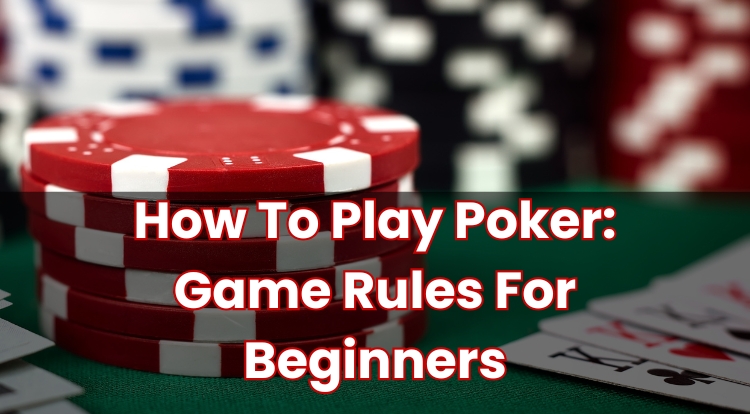Fish Poker: Learn the Meaning, Origins & How to Spot Fish Online
Poker has its own set of terms and phrases that can sound unusual if you are new to the game. “Fish” is one such word that pops up often, especially if you are exploring online poker for the first time. This term has become a key part of poker talk both at live tables and on betting websites.
Knowing a little about poker language could help newcomers feel more comfortable, whether playing at home or on the internet.
In this article, you will find out what “fish” means in poker, where the term came from, and how it is used today, especially when playing online. Read on to learn more.
What Does Fish Mean in Poker?
In poker, the term “fish” describes a player who often makes simple mistakes or has limited experience. It is not tied to age or how long someone has been around the game. It is more about how they approach decisions, such as calling too often, chasing weak hands, or misreading what others are trying to do.
Someone called a “fish” might stay in with poor starting cards, call bets without a clear plan, or miss obvious signs from the betting action. The word appears in both live rooms and online. In online games, you may see it used in player notes or chat, although many sites encourage respectful language.
It might be worth remembering that “fish” is informal slang rather than anything in the official rules. The label refers to playing style, not a person’s character, and every player starts out learning the same basics.
Players should always remember to gamble responsibly and within their means- never wager more than you can afford to lose.
Where Did the Term Fish in Poker Come From?
The word “fish” has been around poker for decades. It likely grew out of early card rooms in the United States, where regulars used fishing phrases to describe new or less skilled opponents. The idea was that experienced players felt they were “fishing” when someone who was still learning joined the table.
As poker spread from small rooms to larger casinos and televised events, the slang travelled with it. When online poker arrived in the late 1990s, forum chatter and on-table chat helped the term stick across countries, including the UK. Today, it is a common bit of poker shorthand used to describe a specific style of play rather than a formal status.
How Do You Spot a Fish Player in Online Poker?
Spotting a “fish” online is different from reading someone’s face across a real table. Instead of physical tells, you look for patterns in how they take part in hands and how they size their bets.
A frequent signal is entering too many pots. If a player is involved in nearly every hand and rarely folds pre-flop, they are likely taking part with a wide range of weak cards. You will also see a lot of limping, where a player just calls the minimum to see the next cards rather than raising when it would make sense to do so.
Betting patterns are another clue. Watch for unusual sizing, like tiny bets in big pots or sudden oversized bets that do not fit the story of the hand. Some players call almost every bet but hardly ever raise, which makes their range transparent over time. Others use the auto “check” and “call” buttons repeatedly, suggesting they are not adapting to what is happening.
Timing can tell you something as well. Very fast, automatic actions in tricky spots often point to decisions made without considering the board or bet sizes. Many platforms also display basic table stats such as how often a player voluntarily puts chips in the pot. If those numbers are very high, it often links to the looser style described above.
Common Behaviours That Make Someone a Fish
Across formats, a few habits tend to attract the “fish” label because they make long-term results harder to maintain.
Playing too many starting hands is the most common. Calling with marginal cards from early positions, or seeing flops simply because the price looks small, puts a player at a disadvantage against tighter ranges. Over time, weak starts produce weak finishes.
Chasing without the right price is another. Calling with draws when the pot odds are not there, or ignoring how many outs are realistically clean, leads to repeated small losses that add up. You will also see inconsistent bet sizing, such as betting very small with strong hands and very large when unsure, which makes decisions easier for observant opponents.
Position is often misunderstood. Acting early without information while using the same range as on the button is a classic sign of inexperience. Stack awareness matters too. Calling off a large share of a stack with marginal hands, or failing to adjust to short or deep stacks, suggests the broader situation is not being considered.
These patterns do not define a person, but they do describe a playing style that tends to give away value. Understanding them could help explain why outcomes often look the way they do.
Why Do Fish Players Lose Money at Poker?
Losses usually come from a mixture of weak starting ranges, poor pricing, and inconsistent decisions under pressure. Entering pots with hands that rarely connect well by the river puts a player behind before the action starts. From there, calling too often without the right odds or folding too late compounds the problem.
Betting without a plan also hurts results. For example, calling on the flop and turn with no clear intention for the river can lead to paying off stronger made hands. Conversely, bluffing in spots where opponents hardly ever fold is another way chips slip away. In many cases, the maths of the situation is not being weighed against the potential reward.
There is also the natural variance of poker. Short runs can look good or bad for anyone, but over time, the same habits tend to show through in the balance. Most players will not make a consistent profit long term, and results are never guaranteed. If you do choose to play, only stake what you can afford to lose and consider using the safer gambling tools offered on your site.
How Do Experienced Players React to Fish?
More experienced players tend to simplify when facing someone they believe is a “fish”. Rather than relying on elaborate bluffs or tricky lines, they build pots with strong hands and charge draws properly. Value betting becomes more frequent, and thin value bets appear in spots where a call is common.
They also isolate more. If a loose player limps into a lot of pots, a seasoned opponent may raise to play heads up, where decisions are clearer. Bluffing decreases in places where calls are routine, while discipline increases in places where a sudden surge in aggression suggests real strength.
At the table, tone matters. Many players prefer to keep chat neutral and let the cards do the talking. Most platforms encourage respectful behaviour, so you will usually see experienced players stay focused on decisions rather than labels.
Is Being Called a Fish Always Negative?
Not necessarily. Sometimes it is used casually to describe a style, especially among friends or in low-stakes games. It can also be a light comment about someone trying out a new format or playing more loosely than usual.
Context is important, though. The same word can be used unkindly, and that is where etiquette comes in. If chat crosses the line, most sites provide tools to mute, block, or report. Keeping conversations respectful helps everyone focus on the game rather than name-calling.
Ultimately, “fish” is just slang. It is not a ranking or an official tag, and experience changes over time as players learn. Understanding what the term means, where it came from, and how those behaviours show up online simply helps you read the table more clearly and enjoy the game on your own terms.
**The information provided in this blog is intended for educational purposes and should not be construed as betting advice or a guarantee of success. Always gamble responsibly.
*All values (Bet Levels, Maximum Wins etc.) mentioned in relation to these games are subject to change at any time. Game features mentioned may not be available in some jurisdictions.





